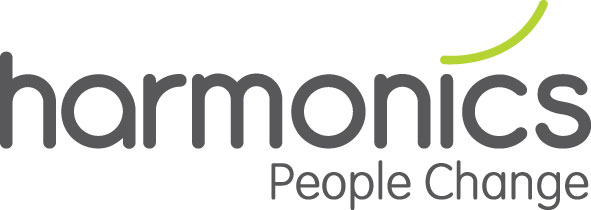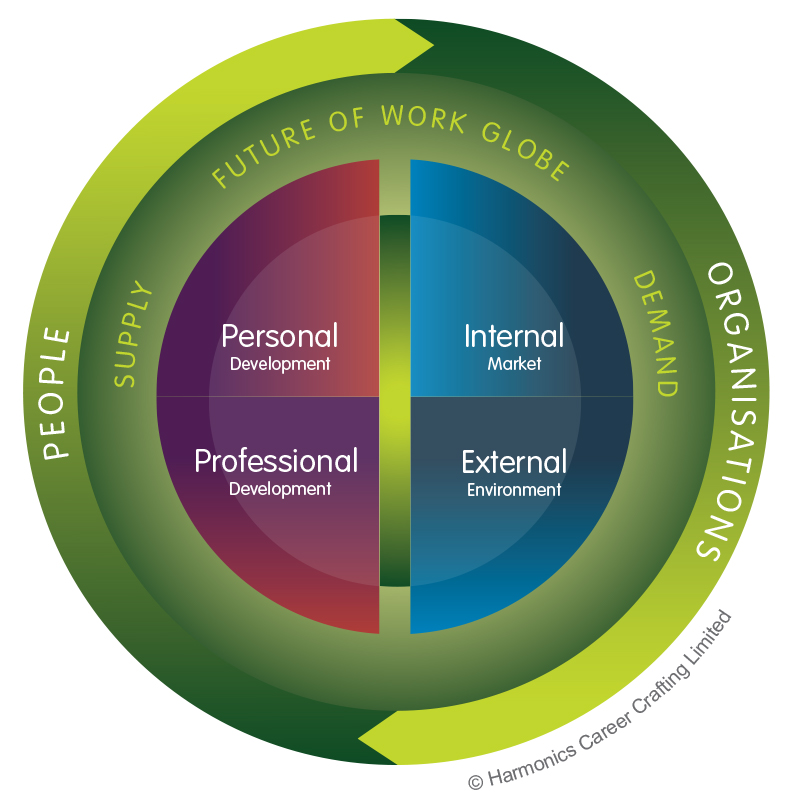Future Career
Readiness Index
Diego Pasjalidis
Future Career Readiness Report
March 2026
Introduction |

|

- Personal Development – Uncovers your commitment to personal-mastery and whether you are maximising your talent and thriving
- Professional Development – Spotlights your current performance track record and commitment to recent learning
- Internal Market – Examines your reputation with key influencers in your organisation and your readiness to adapt and anticipate change
- External Environment – Measures your big-picture view of external insights, global best practice thinking and your diverse networks
- Bridging the Gap – Identifies your level of proactive readiness to take advantage of chance opportunities that may arise at any time
Executive Summary |

|
Future Career Readiness Overall Score
Your Score
Benchmark Score
Category Overview
| Score of 50% of less | |
| Score of 51% - 74% | |
| Score of 75% - 100% |
Benchmark Comparison
Methodology Overview |

|
We represent the Future of Work in a three dimensional way focussing on the individual, the employer and the environment. The Future of Work Globe below illustrates the dynamic and evolving nature of all three dimensions in this ecosystem.

Your Scores |

|
| Your Score | Benchmark | |
Personal Development |
75% | 72% |
| I work in a role that maximises my skills and talents to the fullest. | 6.0 | 6.4 |
| My work now is strongly aligned to my values and purpose. | 6.0 | 6.8 |
| I am resilient and adapt well to setbacks to achieve my career goals. | 9.0 | 7.4 |
| I would describe myself as curious and regularly seek out new experiences. | 9.0 | 8.1 |
| Your Score | Benchmark | |
Professional Development |
85% | 70% |
| I have a high-performance career track record over the last 3 years. | 9.0 | 7.2 |
| I would describe my current skills and education as being highly sought after. | 8.0 | 7.0 |
| I have learned new skills and knowledge this year which will enhance my future career. | 9.0 | 7.1 |
| I have completed professional development over the past 12 months. | 8.0 | 6.7 |
| Your Score | Benchmark | |
Internal Market |
95% | 73% |
| I am prepared for the impact that AI and automation will have on my role and workplace. | 9.0 | 6.1 |
| I share my knowledge freely and collaborate well with others at work. | 10.0 | 8.4 |
| I am a 'go to' person and consulted regularly by leaders for my opinion. | 10.0 | 7.1 |
| I can confidently and clearly articulate how my role adds value to the organisation's goals. | 9.0 | 7.6 |
| Your Score | Benchmark | |
External Environment |
95% | 62% |
| I have an All-Star LinkedIn Profile that is up to date and attracts views. | 10.0 | 5.2 |
| I have a broad and diverse network made up of people from a variety of backgrounds. | 10.0 | 6.3 |
| I am informed and knowledgeable about the changing Future of Work. | 9.0 | 6.5 |
| I am fully aware of our changing customer challenges. | 9.0 | 7.0 |
| Your Score | Benchmark | |
Bridging the Gap |
78% | 52% |
| I have fully researched potential career progression opportunities that suit me. | 8.0 | 5.6 |
| I have proactively built relationships with key influencers | 8.0 | 5.5 |
| I know clearly “what I want to experience next in my career and why”. | 8.0 | 6.1 |
| I have a monthly ‘calendar appointment with myself’ to assess my career progress. | 7.0 | 3.6 |
Your overall Future Career Readiness Index Score:
Your High's and Low's |

|
Highest Scoring Statements:
| I am a 'go to' person and consulted regularly by leaders for my opinion. | 10 |
| I share my knowledge freely and collaborate well with others at work. | 10 |
| I have a broad and diverse network made up of people from a variety of backgrounds. | 10 |
| I have an All-Star LinkedIn Profile that is up to date and attracts views. | 10 |
| I am fully aware of our changing customer challenges. | 9 |
| I am informed and knowledgeable about the changing Future of Work. | 9 |
Lowest Scoring Statements:
| I work in a role that maximises my skills and talents to the fullest. | 6 |
| My work now is strongly aligned to my values and purpose. | 6 |
| I have a monthly ‘calendar appointment with myself’ to assess my career progress. | 7 |
| I have fully researched potential career progression opportunities that suit me. | 8 |
| I would describe my current skills and education as being highly sought after. | 8 |
| I know clearly “what I want to experience next in my career and why”. | 8 |
These low scoring statements require focus for your future career development. In reviewing each statement above, here are some questions to consider:
3 Career Coach Questions:
- What are the key themes emerging for you from this list?
- What might you be avoiding doing to date that will negatively impact your future career?
- What ONE BIG THING, if you did it now, would make the most difference to your future career?
My ‘Future Ready’
Career Development
Guide
Includes 20 powerful
Career Coaching Questions
to accelerate your career
Personal Development |

|
To be at your career best it is imperative to assess and reassess regularly your skills from a much broader perspective than you use in your current role. What skills are you currently known for? Do you have the right level of challenge and are you using skills that motivate you in your current role? Do your current skills make you a high value individual? What specific skills would you like to develop? Those who are future ready seek out new projects that develop their motivated skills, talents and abilities while offering stretch and challenge.
Does your current role offer you opportunities to be at your career best?
Work that aligns to your purpose and "inner why" is hugely fulfilling and rewarding. Many do not think too deeply about why they do what they do, but it is important to be aligned to your values and purpose for optimal career satisfaction. A personal purpose statement simplifies your future career direction – your goals, work and employer either aligns with your definite major purpose or it doesn’t. Take the time to write your own personal purpose statement and then over time, come back and check if it is still working for you.
What is your personal purpose statement?
Personal resilience is a defining characteristic in dealing with the constantly changing priorities of the modern workplace. It is your capacity to actively respond to pressure and ‘bounce back’. Today you need to cope with challenges like constant organisational change, deadlines, and increasing competition from work and business rivals. Agility and adaptability are key traits sought out by Organisations in a constant state of flux. While some seem to be born with more resilience than others, you can learn how to adapt when the going gets tough.
What challenges have you overcome in your career that you can learn from?
The more complex changing world of work will require you come up with more creative solutions. We were all curious as children when we asked why? why? why? We were unafraid to ask questions, as we didn’t fear being judged by others. Research has shown that the longer we stay in one role, the more our curiosity declines. Exposing yourself to new experiences is a catalyst for increased personal job satisfaction and higher performance. Seek to become more curious by asking “why?”, “what if?”, “how might we?” more often.
What are you curious about? Why? What new experiences interest you? Why?
Professional Development |

|
Your CV is merely a document recording your career history most relevant of which is your past 3 years. In sporting terms, you would study an athletes most recent form but not their form from several years past. In your career, and being honest with yourself - are you in the form of your life or are there signs of a dip? If so, what has caused the performance improvement or dip? Think of times when you have been at your career best, was it the role, the skills you used, the environment or the people on the team?
What factors have contributed when you have been at your career best?
Research conducted by John Seely Brown and Professor Peter Denning shows the half-life of a learned skill is now only 5 years! The pace of technology change will see new skills in demand and others obsolete. Conduct your own research into the skills and education most highly valued now inside your organisation and in the wider world of work. Ask why new people have been hired and what skills they possess? Research LinkedIn profiles of those in roles you would like to attain to gain more insight.
What skills and education make you more valuable and sought after and why?
Professional development comes in many forms. Have you attended your membership body events or conferences? Have you a retained coach, mentor, sponsor? Have you read books, listened to podcasts, videos, Ted Talks? Have you completed work specific or open study courses or formal education? Have you written content or been interviewed as a content expert? Being busy is not an excuse. Professional development not only opens your mind, it also increases your network.
What professional development will give you an edge in the future?
Carol Dweck coined the terms fixed mindset and growth mindset to describe the underlying beliefs people have about learning and intelligence. You will only be interested in learning new skills and knowledge in an area that interests you. Learning is more than a quick fix course or gaining qualifications, it is about being curious, open to new experiences, testing, failing and applying your new knowledge into contexts that add value to your organisation. Seek out work projects that stretch and grow your knowledge.
What skills and learning have you added this year to make you more marketable?
Internal Market |

|
AI and automation will transform roles and cultures within Organisations. Routine cognitive work will continue to be automated by virtue of the fact that any work that that is repeatable can be digitised. Our work will require us to use more critical thinking, collaboration and communication skills than ever before. These skills are uniquely human and is where we outperform machines. We need to be ready to collaborate, to work in unison with machines and not fear this change. Being future-ready demands that you disrupt yourself to learn more about AI and automation.
How is AI and automation impacting your role and workplace and how will you adapt?
Data has become the new oil of the 21st century and new AI systems harnessing data across the organisation will see many silos broken down to increase efficiency of customer response. The world of work is now ‘open’ and your willingness to share knowledge will increase your value to your team, work colleagues and employer. Think about your distinct area of expertise and how you can add value to others. Focus on collaborating on projects that create the best win-wins for your career goals, but be mindful to collaborate efficiently and also learn to say “No” to overload.
How can you efficiently collaborate and share knowledge with others in your area of expertise?
Becoming a ‘go to person’ is about developing relationships with key stakeholders where you are known as a valuable partner in solving key business challenges. What ‘words’ or ‘statements’ would these stakeholders use to describe you? It is a revealing exercise to ask for feedback and gain a snap shot of your personal brand reputation. You may work very hard, but never assume others know what you do. Anticipate future challenges, be prepared to share insights in your subject matter expertise and to offer a contrarian view to the norm.
What ‘words’ or ‘statements’ represent your personal brand in your organisation?
The most common way people traditionally progressed their careers was by responding to a ‘tap on the shoulder’ from a manager. This is a reactive career strategy and never of your own design and making. Being future career-ready requires you to confidently articulate your unique value proposition to your employer. Keeping a monthly achievement diary is a great way to note how you have added value and prepares you to pitch for future opportunities. See yourself as a consultant solving problems for your customer i.e. your employer.
In what 3 ways does your role add value to your organisation?
External Environment |

|
LinkedIn is your personal shop window to showcase your career achievements and build your personal brand. LinkedIn is not just a recruitment platform, it is a research and influencing tool, so it is important to have a current, accomplished and succinct profile. Future thinking organisations want their people proudly representing their personal and corporate brands on LinkedIn. People join People, and Organisations today are eager to attract the best talent who research employers and their current employees before they join.
How current are your career achievements on your LinkedIn profile?
Many professionals become busy in their jobs and neglect growing their influence and network. Growing your network is important to gain fresh perspectives and information from a variety of sources. Many great innovations are coming from outside industry sectors - Airbnb was not started by hoteliers, Uber was not founded within the Taxi industry, Netflix was not started within the media industry. Start building a tribe from a variety of backgrounds, perspectives and experiences that broaden your view of the future of work.
Who can you target to grow your network to gain fresh perspectives?
The Future of work is impacting us all now and you need to be informed. The World Economic Forum provides latest global research on the Future of Jobs in demand and in decline. Simply using hashtags on twitter such as #futureofwork; #ai, #automation, #disruption, #digitalisation, #newworldofwork, #gigeconomy keep you up to speed and offer suggestions of who to follow. Recommended reads include; ‘Open’ by David Price, ‘The Rise of the Robots’ by Martin Ford,’ The Future of Work’ by Marcus Clark or Jacob Morgan’s ‘Future of Work’ podcast.
How is the Future of Work impacting your profession, organisation and sector?
The voice of the customer is often forgotten in the busyness of our daily tasks. While your role may not be customer facing, it is important to learn more about their challenges and gain new insights? Product life cycles are becoming shorter and customer needs are constantly changing especially with the growing trend towards online and new business models. It is important to stay attuned to market changes, competitor activity and customer trends. It is your responsibility, to scan for future change - as it impacts directly on your career!
What are the key challenges facing your customers in the next year?
Bridging the Gap |

|
The modern addiction to ‘busyness’ can make you feel safe but lessens your ability to create the future you want. You need to commit regularly to researching and designing your next career move based on what you want, rather than what others want. In the future of work, the onus is on you to influence the design of your current or future role to fit your skills and talents. Your future employability is greatly enhanced by proactively seeking what you want rather accepting the job being offered.
What research do you need to do to grow your awareness of future opportunities?
There are people in every organization, industry sector and career field who hold authority and power. These are your ‘defacto’ agents whom you need to purposely build relationships with and get on their agenda. These strategic influencers help unlock new career opportunities. Your job is to ensure they know about your skills and future career growth aspirations so they have you in mind for career growth projects. New opportunities are offered to those whom are known and trusted by key decision makers.
What decision makers do you need to target to foster stronger relationships?
The person who is most certain will always influence most when two people meet. The more certain you are about your next career growth challenge, the greater chance you have of attaining it. Research shows, 70% of those interviewed ended up where they did by chance. Imagine if you decided what you wanted and why and then started to communicate this to others? Research your market and then decide ‘what you want and why’. If you don’t find exactly what you want, you will have moved many steps closer than when you started.
What do you see as your next career growth move and why?
The most important monthly appointment in your diary should be with yourself. The difference between future career ready professionals and others is they spend time working on their career and not just working hard in their job. The future of work is less about responding, but more about anticipating how you can change your course as you go. There is no 5-year career plan that will not change, today, you need to set your sails and be prepared to adjust course as you go. This monthly appointment time offers you this valuable time.
What are your monthly appointment times with yourself for the next year?


|

|


